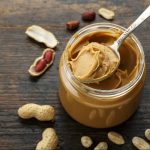It’s time to ditch corporate peanut butter brands and here is why
 (NaturalHealth365) Americans love shiny and brightly packaged foodstuffs. It’s why supermarket shelves are lined with a Willy Wonka wonderland of processed treats and glittery goodies, and Instagram is flooded with carefully stylized and curated foodtography. But if there’s one thing we love more than brightly colored foodstuffs, it’s non-stop convenience. If there’s one thing more convenient than the fact that Lays sells more than 20 flavors of potato chips, it’s that peanut brands like Jif and Skippy are made with palm oil and hydrogenated vegetable oil solely to keep the peanut butter from separating. But there’s a dark side to that convenience.
(NaturalHealth365) Americans love shiny and brightly packaged foodstuffs. It’s why supermarket shelves are lined with a Willy Wonka wonderland of processed treats and glittery goodies, and Instagram is flooded with carefully stylized and curated foodtography. But if there’s one thing we love more than brightly colored foodstuffs, it’s non-stop convenience. If there’s one thing more convenient than the fact that Lays sells more than 20 flavors of potato chips, it’s that peanut brands like Jif and Skippy are made with palm oil and hydrogenated vegetable oil solely to keep the peanut butter from separating. But there’s a dark side to that convenience.
According to an Associated Press investigation, the $65 billion global palm oil industry exploits an army of children. Child labor has been identified as a serious problem by rights groups, the United Nations, and the U.S. government. Palm oil production has also been linked to deforestation, especially in Indonesia and Malaysia, producing 85% of the world’s palm oil. Hydrogenated vegetable oils (cottonseed, soybean, and rapeseed oil), on the other hand, have been shown to harm heart health, increasing LDL (bad cholesterol) and plasma lipid levels.
WARNING: Palm oil is used by Food Giants purely for cosmetic reasons
Peanut butter Food Giants use palm oil and hydrogenated vegetable oils as cheap and unhealthy fillers to increase profits. The questionable oils are added to corporate brands to extend shelf-life, and in some cases, these nut butters can last a year on supermarket shelves without going bad. In addition to shelf stability, more oils mean fewer actual nuts are added to each jar of peanut butter.
Oil-stabilized peanut butter is “better looking” than natural peanut butter. It doesn’t separate, and therefore it’s convenient (who has time to stir?). It’s the peanut butter that many Americans grew up with, and unscrupulous corporate Food Giants are marketing nostalgia more than anything else. And that nostalgia comes at a humanistic and ecological cost.
In the book Planet Palm: How Palm Oil Ended Up in Everything – and Endangered the World, Jocelyn C. Zuckerman talks about how oil palm companies in Liberia destroy crops and pollute streams, how they rip out native crops and replace them with palm oil, and a one-time payment of a few hundred dollars, leaving the land unable to yield plantains, rice, peppers, and other staple crops.
Beware of dangerous mold toxins present in many peanut butter brands
In addition to the social and environmental issues tied to corporate peanut butter, it is important to mention that the risk of toxic mold contamination with any – big brand, natural, and even organic – peanut butter is real. As peanuts grow underground, they often become contaminated with a highly toxic mold called aspergillus. Strains of the mold Aspergillus flavus and A. parasiticus that grow on peanuts stored in warm and humid conditions produce a natural toxin, aflatoxin, a potent carcinogen.
Discover a Simple and Effective Way to Remove Toxins: This is Jonathan's #1 choice for at-home detoxification. Special offer ends Feb. 16.
Consider almond butter instead of peanut butter to minimize your risk of exposure to this liver cancer-causing toxin. Since almonds grow on trees – instead of underground like peanuts – they are much less likely to be affected by the mold toxin – aflatoxin.
Keep in mind that nuts are also common allergens, so use caution when trying new types of nut butter.
Sources for this article include:



